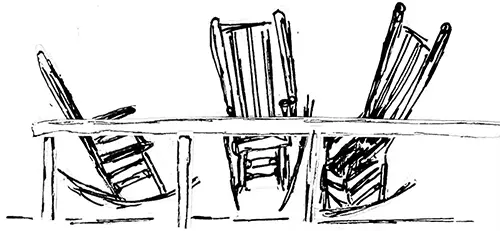Philosophers & Saints 186
Women, The Cosmos, and Cosmetics
I still do not understand why, in a prison and particularly in a jungle prison, where needs multiply like rats, why the need for lipstick should vault to the top…
Strauss and Schmitt Go to China
"Faced with the poverty, incompetence, and weak tyranny that real, existing socialism had delivered, many Poles I knew had begun a similar intellectual journey. And today, it’s the turn of…
Ida’s Own Private Husband
My review of Leigh Eric Schmidt's Heaven's Bride appeared in this weekend's Wall Street Journal.
Thanksgiving, All Too Un-Human
Thanksgiving, which may initially seem like a practice that is all too foreign to our second nature, can become an activity that realizes our more original human nature-i.e., the nature…
What is it Like to be a Man?
And nowhere, not in so much as a page of this literature, does one discover even the beginnings of an answer to the question, “what is it like to be…
In Defense of Culture
In which "culture" is distinguished from our contemporary "anti-culture."
Scientia and Sapentia, or, What the Schoolmen Knew
Modern science has given us modern miracles, like iPhones and atom bombs and Chrysler cars, but has not given us the wisdom to use them.
Rising Scientism, Declining Supernaturalism, and the Loss of Taste and Morals in W.G. Simms’ “Grayling”
William Gilmore Simms’ claims about the decay of morals and the arts that results from the rise of scientism and decline of supernaturalism can be elaborated by reflecting on the…
Give Us This Day Our Bread–Perennially
Planting a greener Green Revolution.
The Jurisdiction of Science
They have no objections to non-scientists writing on evolutionary topics, so long as they do so in the proper spirit of submissiveness and adulation.
Hearing Wendell Berry
For Wendell Berry, the environmentalist cause and the localist cause are (or should be) one and the same.
Stephen Hawking Proves the Existence of God
Obfuscating language and philosophical ignorance do not prevent Hawking from suggesting that modern physics confirms Christian cosmology. Nature really does conform to uncreated law.
Civilization & The Sacred
Civilization rests upon the sacred. Thus it is as grimly appropriate that the first atom bomb test was sacrilegiously codenamed “Trinity” – as in *the* Trinity – as it is…
Wendell Berry and the Great Economy
Economics has become a totalizing system claiming the power to explain all things. It is as much a religious system—by another name—as is Berry's Great Economy.
Have We Forgotten the Women?
Tradition supposedly bears the thumbprints of Roman patricians with browbeaten wives or frustrated monks who shivered in mediæval abbeys.
Science, Self-Deification, and Gnosticism in Nathaniel Hawthorne’s “The Birthmark”
Nathaniel Hawthorne's "The Birthmark" provides a springboard for reflecting on the problems of scientism, especially the temptation to self-deification and, what Eric Voegelin terms, modern Gnosticism.
Defining Red Toryism (Again)
A scholar suggests that Phillip Blond's Red Toryism is just another word for conventional conservatism. He may be right about Blond, but he's definitely not about the idea.
A Tenancy of Will
Your body’s yours, just as this poem is mine: to make, destroy—a tenancy of will, for every citizen and concubine.
More Red Tory
The Cato Institute sponsors a symposium on Philip Blond, with a lead essay by yours truly.
A Note on Right, Left, and Lasch at the Present Time
If Lasch couldn't express a way for leftists and localists to speak the same language, perhaps no one can.
Personality, Conversion, and Being: On John Paul II’s “Fides et Ratio”
The Reader Objects!: If God is Personal and Loving above all, if the Christian believes reason is fundamentally preceded by what is revealed in Faith, then what grounds has the…
Red Tories
In the American context, one could very easily call Red Tories Jeffersonians, and this is where we see the predicament for Red Toryism in the United States.
Bacevich to Miller to Lasch
How's that for a triple play? Andrew Bacevich reviews Eric Miller's new biography of Christopher Lasch.
Big Societies, Christian Communities, and Tories (Red or Otherwise)
Whatever the results of the British election, the Red Tory ideal remains promising...and yet, absent a robust civic religion, also probably wanting.










